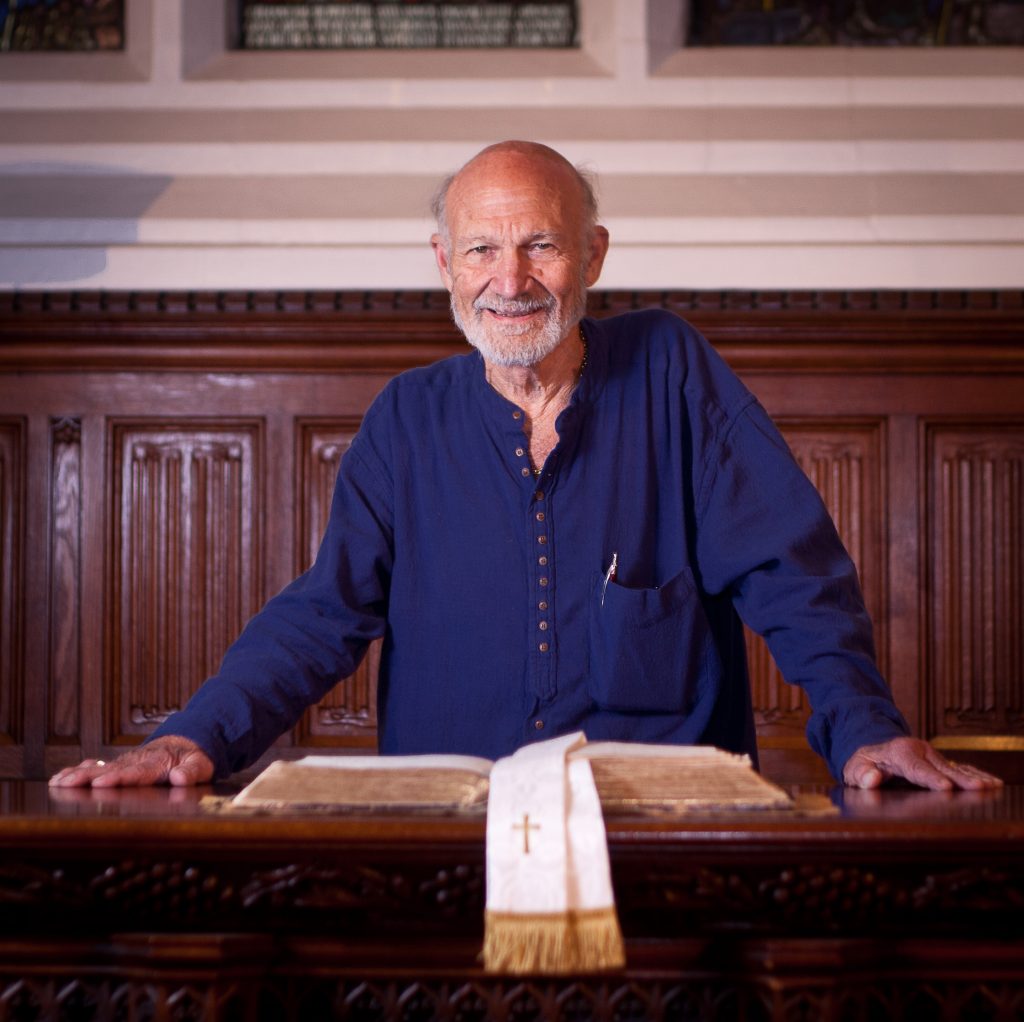“How do I get through the day without telling a lie?”
Stanley Hauwerwas
“How do I get through the day without telling a lie?”
Stanley Hauwerwas
Theologian

Join Our Mailing List
Sign up below and we'll send you occasional updates,
This short interview was conducted late in 2015 at the University of Aberdeen
KP ‘How do I get through the day without telling a lie?’ is this a question of living with integrity?
SH Partly involves integrity, I think we lie often not because we’re liars, but because we’re moderately good people who don’t want to hurt anyone, and therefore we often times restrain ourselves from saying what needs to be said, because we don’t want to live with the results….And it’s also, of course, hard to know what the truth is at times. To be able to know how to say what the truth should be comes from the hard work of being trained in speech habits that don’t lead us into lies that we then must live out.
KP Your work as a theologian is often directed at telling the truth to or about the church- is the church a place where we can live out lies?
SH The church can be an extremely good place to live out lies, because it prides itself on being a place of truth, therefore it may not take seriously enough the fact that part of the truth we live out is that we are sinners, who want to deny that we are creatures of a good God. Our lives are shaped fundamentally by this lie that is the basis for all lies.
KP What places can usher us into the habit of being able to tell the truth?
SH The university prides itself on being a place where the truth matters more than anything. I think I would give it high marks for being a place for speech discovered that makes possible our discovery that what we thought we knew, we didn’t. I think often today some businesses are much more upfront about the necessity to tell the truth, because they have a bottom line. If you’re lazy, you have to be told you’re lazy because you’re not helping the business make money, and therefore they can assess one another contributions with an accuracy that oftentimes is missing in church culture, which are too often dominated by the need to be compassionate.
KP Do you think that the need to be compassionate can obscure the truth?
SH Right, compassion, rightly understood, must be truthful. But it’s often times not understood to be that.
KP Though presumably, the church should be showing us how to live truthfully?
SH That’s right, it does that by helping us learn to be friends capable of telling one another the truth, even at the risk of losing a friendship. The church is about being part of a community that has long discovered, if it’s not truthful, it will die.
7 Responses
Generally speaking, we encourage readers to respond to the question that each interviewee poses. What was your first reaction? Do you agree? Disagree? Please, let us know!
Aaron Moore
Based on this interview it would be interesting to see what practical lessons the church could learn from the university institution in becoming a place of greater truth.
Kenny Primrose
What would that look like? I like the point about misunderstanding compassion, and therefore being less than truthful. I think cultures which can stand subversive voices are less likely to bury truth.
Aaron Moore
Yes I think so too. I think the church might benefit from becoming a place that wrestles more with the Christian scriptures, inviting ever new ways of seeing and interpreting them, a constant reforming, and open dialogue. That’s more what a university makes me think of, new ideas, new knowledge and learning, rather than old dogma and tradition (although universities have their tradition too).
teddy day wallpapers
Your style is unique in comparison to other folks I have read stuff
from. Many thanks for posting when you have the opportunity, Guess
I’ll just book mark this web site.
Ben Mills
Do I exist? I’m scared
Joshua
If I am keeping a secret for someone, someone asks me for information regarding said secret, and I say I have none, does that secret become a lie?